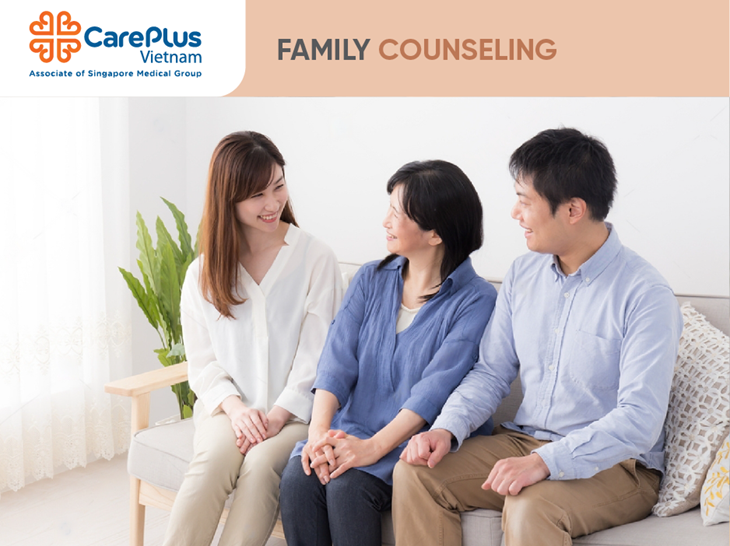Family Counseling

Family counseling is a form of talk therapy focused on improving relationships among family members. It can also provide support for mental health conditions that impact the family, such as eating disorders, depression, anxiety, and more.
During the process of family counseling, participants may include parents/guardians and children, siblings, grandparents, aunts, uncles, friends, or other caregivers. Depending on the nature of the issue, the counselor will recommend which members should participate. The commitment level of each family member is one of the key factors influencing the outcomes of the counseling process.
Having all family members together in a safe space, guided by a neutral, understanding, and empathetic psychologist, creates the foundation for families to work together to resolve and face challenges such as:
- Changes in family structure: e.g., the arrival or departure of a family member, marital issues such as divorce or separation, or relocation.
- Difficulties in communication or parenting, or adapting to significant life changes.
- Disagreements and conflicts in relationships between members: parents with children, grandparents with grandchildren, siblings, etc.
What is family counseling?
Family counseling is a process where a psychologist works collaboratively with family members to improve relationships, resolve conflicts, and foster greater understanding within the family. The counselor will help the family enhance communication, cope with stress, resolve marital or parenting issues, and address mental health concerns of one or more members.
Why might a family need psychological counseling?
Every family faces its own set of challenges—from marital or parenting problems to major life changes like moving, divorce, or loss. Counseling helps families navigate these difficulties, improve communication, and create a loving, supportive environment. The process also teaches families to resolve conflicts peacefully and to find appropriate solutions together.
When should a family consider counseling?
A family might consider counseling under the following circumstances:
- Conflicts between family members (e.g., spousal arguments, parent-child disagreements).
- Feeling disconnected or misunderstood within the family.
- Parenting challenges, especially during difficult developmental stages like adolescence.
- One or more family members experiencing mental health or behavioral issues such as anxiety or depression.
- Major life events influencing the family, such as divorce, loss, or moving house.
- Difficulties establishing effective communication or mutual support.
How does family counseling work?
In family counseling, the psychologist listens and communicates with all or individual family members, depending on the specific context. Sessions focus on listening to and understanding each person’s perspective, identifying the root causes of issues, and collaboratively discussing solutions. The process may include communication techniques, conflict resolution strategies, and guidance on how to work together to build a healthier family environment.
Is family counseling effective?
Family counseling has been shown to be an effective tool for resolving conflicts and strengthening family relationships. Families who participate often report improved connection and understanding, more harmonious relationships, and more positive resolution of familial issues. However, effectiveness depends on the engagement and commitment of all participating members.
Family counseling helps families resolve conflicts, strengthen relationships, and build a supportive, healthy environment. If your family is facing communication problems, parenting challenges, or other psychological issues, counseling can help every member better understand each other and overcome difficulties together.
DURATION: 90 minutes per session
Language: Vietnamese
FOR INQUIRIES ABOUT MENTAL HEALTH SERVICES AT CAREPLUS:
Service appointments require prior consultation and booking. Please contact the Mental Health Care Department for consultation and assistance in scheduling an appointment.
Phone: 0918 714 225
Email: cmh@careplusvn.com